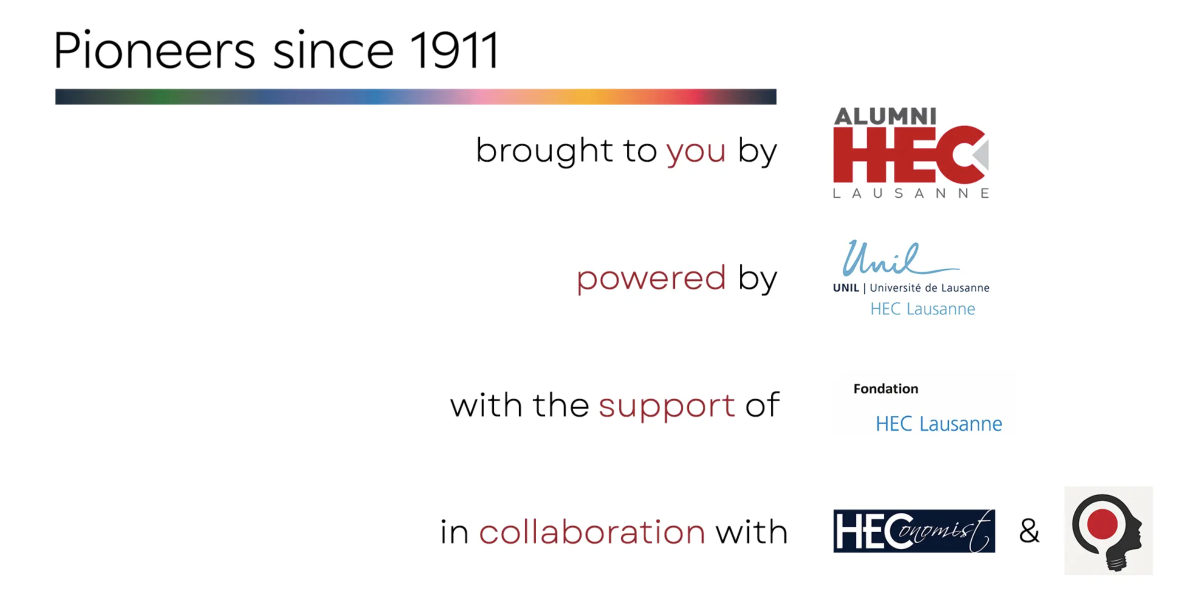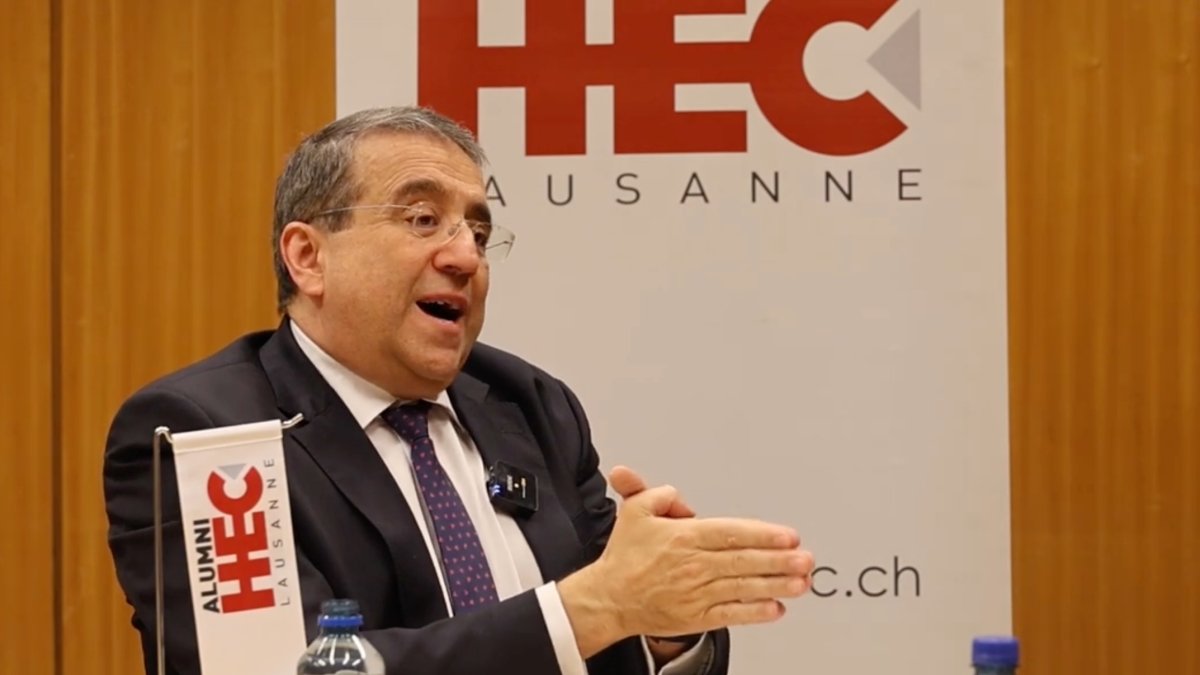14.05.2025
Special Report > Léon Walras - HEC - Taxation
The Role of Taxation Today: Interview with Mr. Broulis
As part of the Pioneers since 1911 Project on taxation—which began with an exploration of the archives and the (re)discovery of Léon Walras’s legacy—this is the second installment of our special feature, focusing on taxation today.
Watch the filmed interview with Pascal Broulis, Member of the Council of States and former Minister of Finance for the Canton of Vaud.
In a few lines, a summary of the interview:
Advocating for a Citizen-Oriented, Stable, and Solidarity-Based Tax System
Pascal Broulis, former Finance Minister of the Canton of Vaud, is a key figure in the fiscal debate in French-speaking Switzerland. In this interview, he presents a pragmatic and humanist vision of taxation, which he defines primarily as an instrument of solidarity and social cohesion. His approach seeks a constant balance between economic efficiency, budgetary stability, and collective justice.
Tax as an Expression of the Social Contract
For Pascal Broulis, taxation is neither a punishment nor a mere accounting abstraction—it reflects our societal choices. It ensures equal access to fundamental services like healthcare, education, and security, and stands as a concrete expression of solidarity among citizens.
He also emphasizes that taxation is a powerful political and societal act that embodies our shared values.
Stable Taxation for Lasting Trust
The former head of Vaud’s finances advocates for stable tax pressure, avoiding sudden changes. Predictable and well-managed taxation is, in his view, essential to maintaining taxpayer trust and Switzerland’s economic appeal. The key lies in disciplined public spending and responsible governance.
Tax Fairness Through Ability to Pay
Broulis maintains that the core principle of Switzerland’s tax system is the ability to pay—each person contributing according to their means. He supports a progressive system, but one that avoids punitive excesses on higher incomes.
He stresses that success should not be stigmatized, but that it is fair for those who have more to contribute more. He also warns against overly aggressive tax policies that could lead to capital flight or reduced investment.
Modernization and Transparency: Today’s Imperatives
Broulis underscores the need to modernize tax administration to make it more accessible and user-friendly. Simplifying the tax system is one of his top priorities. He calls for better access to information for citizens and greater transparency in public spending.
Environment, Technology, and Taxation: Striking the Right Balance
When asked about environmental issues, Broulis sees taxation as a tool for encouragement, not coercion. He supports tax incentives for eco-friendly behavior—such as energy-efficient renovations and sustainable mobility—while recognizing the state’s budgetary limits.
In the face of challenges posed by artificial intelligence and cryptocurrencies, he calls for anticipatory action. He criticizes the slow response of tax authorities to blockchain technology and advocates for swift integration of digital tools for better monitoring and traceability.
A Civic and Educational Approach to Taxation
Broulis emphasizes the importance of tax education from an early age. He believes citizens need to understand how taxes work to accept them. He calls for a tax system that is clearer, more widely taught, and treated less politically in daily practice.
Conclusion: Ethics, Efficiency, and the Common Good
Far from technocratic or populist rhetoric, Pascal Broulis defends a tax system based on clear principles: ethics, efficiency, and responsibility. Taxation should neither be a tool of punishment nor a mere budgetary extraction, but a true lever for collective organization.
In a changing world, he calls for taxation to evolve with society—without losing its core values: solidarity, transparency, and effectiveness.
Biography of Mr. Broulis
Pascal Broulis is a prominent figure in French-speaking Swiss politics. A former State Councillor in the Canton of Vaud for 20 years, he led the Finance Department and presided over the cantonal government from 2007 to 2012. Since 2023, he has represented Vaud in the Council of States. A key architect of Vaud’s financial stability, he spearheaded major tax reforms, particularly benefiting businesses. Known for his commitment to dialogue and consensus-building, he works on issues such as purchasing power, pensions, and modern infrastructure. He is also the author of L’impôt heureux (2011), a manifesto for balanced and responsible taxation.
Interview done with the student associations HEConomist and Innovation Time as well as Nadine Reichenthal et Daniel Maman




